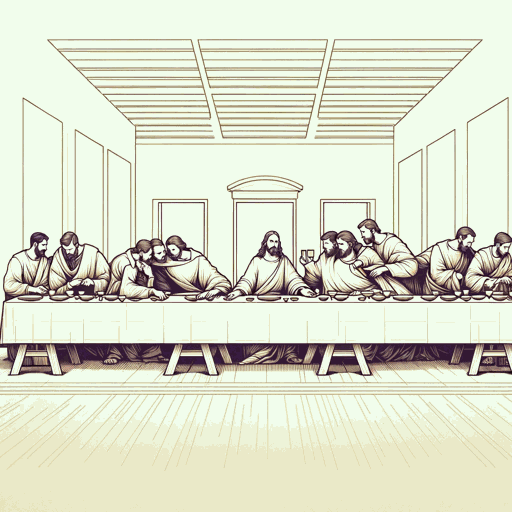50 pages • 1 hour read
William FaulknerAbsalom, Absalom
Fiction | Novel | Adult | Published in 1936A modern alternative to SparkNotes and CliffsNotes, SuperSummary offers high-quality Study Guides with detailed chapter summaries and analysis of major themes, characters, and more.
Literary Devices
Allegory
Absalom, Absalom! can be interpreted as a religious allegory due to the presence of recurring biblical themes and motifs throughout the narrative. The novel’s title itself is a reference to the biblical story of Absalom, which follows the rebellious son of King David who raised a revolt against his father. This parallel establishes the connection to themes of betrayal and filial conflict that arise between Thomas Sutpen, the family patriarch, and his son Henry, who abandons his family and his rights as heir to Sutpen’s Hundred.
There are additional, implicit parallels between the biblical story of Absalom and the familial lineage in Faulkner’s novel as well; Tamar is raped by her half brother Amnon (with whom she shares a father in King David). Absalom avenges his sister by ordering the murder of their half brother, to which Faulkner nods with Henry murdering Judith’s fiancé, Charles Bon, who is their half brother through Thomas Sutpen. Like King David, Thomas Sutpen is a complicated, morally ambiguous patriarch who fathers a lineage of children who inherit—and must contend with—certain complexities surrounding their family line.
Faulkner extends this biblical allegory beyond the King David/Absalom history to draw explicit parallels between Thomas Sutpen and Satan, or a fallen angel.
Related Titles
By William Faulkner

A Fable
William Faulkner

A Rose for Emily
William Faulkner

As I Lay Dying
William Faulkner

Barn Burning
William Faulkner

Dry September
William Faulkner

Go Down, Moses
William Faulkner

Intruder In The Dust
William Faulkner

Light in August
William Faulkner

Sanctuary
William Faulkner

Spotted Horses
William Faulkner

That Evening Sun
William Faulkner

The Bear
William Faulkner

The Hamlet
William Faulkner

The Reivers
William Faulkner

The Sound and the Fury
William Faulkner

The Unvanquished
William Faulkner
Featured Collections
American Civil War
View Collection
Books on Justice & Injustice
View Collection
Family
View Collection
Memory
View Collection
Nation & Nationalism
View Collection
Nobel Laureates in Literature
View Collection
School Book List Titles
View Collection
Southern Gothic
View Collection
War
View Collection

